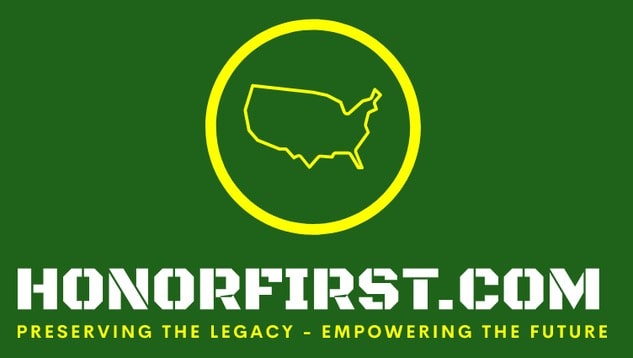March 12 - March 18IntroGood morning, Welcome to another This Week in USBP History! This past week marks the foruth time that the Border Patrol has reviewed the circumstances surrounding an employee's death and subsequently ruled it to be a line of duty death (LODD). This week, the 1927 death of Patrol Inspector Orin F. Hush was reviewed by an HQ panel who determined his death to be a LODD. 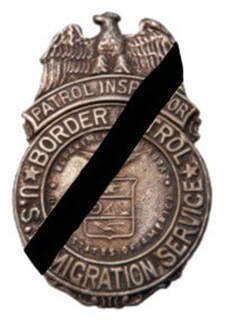 A Department of Labor, Immigration Service, Patrol Inspector Badge A Department of Labor, Immigration Service, Patrol Inspector Badge In January of 1927, the local constable for Marine City, Michigan, had his home burglarized three times. He asked PI Hush for help with apprehending the suspected burglar. PI Hush and the constable took turns watching the home during the evenings. On the night of January 31, 1927, PI Hush was killed by friendly fire in a case of mistaken identity while attempting to secure the home. PI Hush was a World War I veteran, who showed commendable dedication to his country before joining the Immigration and Naturalization Service. PI Hush entered on duty on August 18, 1925, and was assigned to the 11th District Patrol Division, Sub-District Two in Marine City, Michigan. PI Hush’s death was initially determined to be a non-line-of-duty death. In March 2023, the circumstances of his death were re-evaluated by a panel and determined to be a line-of-duty death. At the time of his death, PI Hush was survived by his wife Helena, who is now deceased, and sister Sadie. Current known living relatives include his niece and nephew, Alice and Chad Geurink. How did this happen? Why did it take 96 years for Orin's death to receive this somber recognition? Why is this important? Well, let me answer those questions for you, one at a time. What happened? When Inspector Hush was killed in 1927, he was not in a paid status. He was off-duty. At the time, off-duty deaths and accidental deaths were not considered to be LODDs. Therefore, his death was never included in any Honor Roll and faded from the Patrol's memory. Similarly, it would be several years before Inspector James F. Mankin's 1924 death was carried in the rolls of the Immigration Service's honored fallen. This is evident by his name being omitted in the 1927 Commissioner-General's Annual Report to the Secretary of Labor (pg 18). Why did it take 96 years for Orin's death to receive this somber recognition? Fast forward to 2021... A police officer in the Detroit area was researching old newspapers from the 1920's and stumbled across Inspector Hush's death. After reading several different articles, he was surprised to find that Inspector Hush's death was not an LODD. The officer took his research and gave it to Mark Hall, a USBP employee.. Mark was a rehired annuitant at Detroit Sector, having graduated with Class 167 and EOD'd in 1984 and retired a year or two earlier. Mark had spent over 30 years in Detroit Sector and had attained the rank of Watch Commander. He was known and respected. Mark presented the research to the Chief Patrol Agent and requested permission to continue investigating Inspector Hush's death while on duty. Without hesitation, permission was given. Mark's interest blossomed into passion as he followed every lead that he could uncover, and explored every path he could find. For instance, Mark found out that the Detroit District gave Inspector Orin a funeral with full honors and that Inspector Orin was buried in his uniform. Mark's incredible research was given to USBP HQ where it was repackaged in the form a Line of Duty Death Determination packet and presented before a panel of standing Chief Patrol Agents for consideration. They determined Inspector Orin had been killed while performing a law enforcement action and thus, he died in the line of duty. Inspector Orin's name will be inscribed on the National Law Enforcement Memorial and the CBP Valor Memorial. He will forevermore be remembered as one of the Border Patrol's fallen. Why is this important? Why is honoring and remembering the fallen important? Why is it important to recognize employee achievements, service, and heroism? Why is it important to have USBP Chaplains and Peer Support members? There is a duality in the answer. The first is that we are all United States citizens. And with all of the diversity and differences, we still have a sense of right and wrong that is pretty common. In this case, people who die in the line of duty should be remembered... The second, to me, relates to the definition of Esprit de Corps that is included in every blog post, and has to do with valuing the workforce. The Patrol honoring of the fallen conveys that it values its employees. It says, through action, if you get killed in the line of duty, we will honor and remember you. Similarly to recognitions... If you achieve, serve, or perform acts of heroism, the Patrol will recognize and value you. Similarly to the reason that the USBP Chaplains and Peer Support teams exist... If you need support during a crisis, we value you and will support you! Going on a quick tangent, I have the same view concerning employee deaths as I do employee recognitions... If doubt exists, choose the path most beneficial to the employee. That is showing value and a bias toward the workforce, a la Simon Sinek. It is for that very reason that Border Patrol Agent John Charles Gigax's death is highlighted every week, with the reminder that he is not recognized as officially fallen by Customs and Border Protection, the U.S. Border Patrol, or our friends at the Border Patrol Foundation, or the Border Patrol Museum, even though he is remembered by the:
Where is the bias for Border Patrol Agent John Charles Gigax? How could his name be inscribed on the National Law Enforcement Officer Memorial but not on the Honor Rolls of the U.S. Border Patrol, or our friends at the Border Patrol Foundation, or the Border Patrol Museum? For more information, read This Week in USBP History, Vol. 62. Next week, I'll continue discussing having a bias toward and valuing the workforce with a focus on the person who is primarily responsible for Patrol Inspector Orin F. Hush's death receiving it's proper recognition, retired Watch Commander Mark Hall. This week begins in 1918 as Frank Berkshire's plan to create the Border Patrol starts to gain traction. We have the signing of General Order 61 in 1926, what I consider to be the single, most influential document in USBP history. We have the earliest reference to a rough duty uniform (Class C for you old patrollers) from 1934 and much more! We remember four Newton-Azrak Award recipients on the anniversaries of their heroic actions. We also remember the loss of four of our fallen, including two that fell in the same event. Ramon Nevarez, Jr. and David J. Tourscher fell due in the same incident in 2007. A sad fact is that the USBP has lost two Agents/Inspectors due to the same event nine times (18 fallen). Their names are listed below:
Daniel P. Cox and Edgardo Acosta-Feliciano both fell on July 31, 2021. However, their causes of death were not related. Enjoy and have a great week! Cliff PS -
ESPRIT DE CORPSThe workplace climate resulting from a combination of organizational pride and employee morale.
Esprit de corps is reinforced through the shared goals, mission and values of the organization and its employees. The definition turns Esprit de Corps into a simple formula and defines parts that comprise organizational pride and employee morale. Esprit de Corps = Organizational Pride + Employee Morale Esprit de Corps is the key to a healthy organization and engaged employees. Honor First is foundational to the Border Patrol's organizational pride and integral to its Esprit de Corps. DOCUMENTS AND EVENTS1918
1925
1926
1933
1934
1939
1942
NEWTON-AZRAK AWARD ACTION ANNIVERSARIESFollow this link to see examples of USBP employees Upholding Honor First.
1992 Alan W. Marshall Border Patrol Agent Buffalo Sector During the evening shift on March 15, 1992, Border Patrol Agent Alan W. Marshall made a winter water rescue of an alien he was pursuing, who broke through an ice-covered pond. In trying to reach the man, Agent Marshall was plunged into the same water as the ice gave way beneath him. Agent Marshall’s strength, endurance, and bravery saved not only himself, but also the alien twice that night. After having to physically lift the man from the water, Agent Marshall had to force the man to stay on his feet and walk to reach shelter in 17-degree weather. Christopher M. Jacobs Detention Enforcement Officer Buffalo, New York On March 16, 1992, Detention Enforcement Officer Christopher M. Jacobs saved a passenger from a burning vehicle. He and another officer were escorting a detained alien on the New York State Thruway. They were at a tollbooth when a vehicle traveling at a high speed plowed into the rear of another vehicle in the booth adjacent to the D & D vehicle. There was an instantaneous explosion that pushed the vehicle forward about 200 feet, engulfing the car into a fireball. Officer Jacobs exited his vehicle, obtained a fire extinguisher, and ran to the vehicle. The driver was able to exit on his own but the passenger was semi-conscious and unable to get out. Officer Jacobs entered through the driver’s door, ignoring the real danger for himself, and got the passenger out. He administered first aid until the ambulance arrived. 1998 Richard L. Ashlaw Patrol Agent In Charge Swanton Sector For his heroic actions and unselfish disregard of his own personal safety to come to the rescue of James Baker, who otherwise had no chance of surviving the New Albion Hotel fire March 16, 1998. Patrol Agent in Charge Ashlaw’s actions certainly went above and beyond the responsibilities and duties of a Border Patrol Agent. 1999 Floyd Southerland III Border Patrol Agent Del Rio Sector On March 18, 1999, at approximately 12 noon, Border Patrol Agent Floyd “Buddy” Southerland III and his partner responded to sensor activity three miles up river from the Port of Entry at Del Rio, Texas. Upon arrival at the location of the sensors, Agent Southerland and his partner observed four subjects on the United States side of the Rio Grande River. When the four subjects saw the Border Patrol vehicle, three of the four jumped into the river and began to swim to an island in mid-river. The fourth hesitated, looked at the agents, then jumped. The fourth man could not swim. The Rio Grande River flow down river from Amistad Dam is controlled through water release monitored by the International Boundary and Water Commission. The commission had increased water release from the dam to supplement irrigation needs in the Rio Grande Valley of Texas to a level that brought the river to a very high and swift current. As Agent Southerland arrived and observed the scene, the fourth man was floundering in the water away from the shore and near the mid-river island. Agent Southerland shouted to the three men on the island to help their friend, but they refused. The Rio Grande, due to high water, was a mass of floating debris of cane stalks and other flotsam. Thinking quickly as he watched the river drag the man down and away from the shore and island, Buddy told his partner to get the spare tire from the government vehicle as he began to remove his gun belt and boots. Without hesitation and with total disregard for his own safety, Agent Southerland dove into the muddy river to search for the man. Agent Southerland’s partner cast the spare tire into the river, Agent Southerland used the tire as a floatation device, swam out, located the floundering man, pulled his head out of the water and with monumental effort, brought the man back to the safety of the river bank. The man was a 29-year-old Mexican national. Agent Southerland’s act of selfless heroism and life-saving actions of commendable efficiency and skill draw upon his training and experience acquired throughout his career with the U.S. Border Patrol. He displayed great physical courage, as well as moral courage, to do the right thing. This was the second act of heroism that Agent Southerland had been involved in during that Fiscal Year. In October of 1998, Buddy was cited by the office of the District Attorney, 63rd Judicial District of Texas, for his apprehension and arrest of a man who had kidnapped a teenaged girl, terrorized, and sexually assaulted her. It was the opinion of the District Attorney that Buddy saved her life by rescuing the girl from the man who was holding this young victim. U.S. BORDER PATROL FALLEN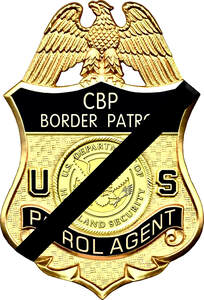 U.S. Border Patrol Badge with a Mourning Band U.S. Border Patrol Badge with a Mourning Band As of March 6, 2023 the U.S. Border Patrol has suffered 154* fallen. Titles
The names that appear below hold a place of honor. They have made the ultimate sacrifice in an effort to fulfill the oath each officer took to protect and defend the United States of America. The facts regarding each officer are presented without major editing of the "language of the day" found in the reports detailing the circumstances of each event. This is done to provide the reader an association with historical timeframes. Employees who died in the line of duty due to being exposed to deadly illnesses will not have the cause of death listed. I will note that Border Patrol Agent John Charles Gigax is not recognized as officially fallen by Customs and Border Protection or the U.S. Border Patrol. The Border Patrol Foundation and the Border Patrol Museum also fail to recognize him. He is remembered by all except organizations containing "Border Patrol" in their title. He is remembered by the:
The U.S. Border Patrol, the Border Patrol Foundation, and the Border Patrol Museum should fix their oversight. HonorFirst.com remembers and lists Agent Gigax among the fallen. 2006 Nicholas D. Greenig Date of Birth: February 20, 1978 Entered on Duty: December 1, 2002 Title: Border Patrol Agent End of Watch: March 14, 2006 Details: On March 14, 2006, Agent Nicholas Greenig was killed in a vehicle accident on the Tohono O'odham Nation in Pima County, Arizona, when the department vehicle he was riding in struck a bull walking across the highway. He and his partner were working a plainclothes detail when the accident occurred at approximately 8:00 pm. Agent Greenig had served with the Border Patrol for three years and was assigned to Ajo Station in Tucson Sector. He was raised in Laurel, Montana, where he attended public schools before he transferred to a private high school in Billings. He graduated with honors from Utah Valley State College in Provo and joined the Border Patrol in 2002. Agent Greenig was a graduate of the 535th session of the Border Patrol Academy. He was a senior patrol agent and a member of a special unit that targeted violent criminal organizations, which smuggled people and drugs. Gravesite 2007 Ramon Nevarez, Jr. Date of Birth: March 27, 1983 Entered on Duty: August 15, 2005 Title: Border Patrol Agent End of Watch: March 15, 2007 Details: On March 15, 2007, Agents Ramon Nevarez and David Tourscher were involved in a single vehicle accident on NM Highway 338 near Cotton City, New Mexico. At approximately 9:00 p.m., Agent Nevarez succumbed to his injuries at the scene. Agent Tourscher was flown to a hospital in El Paso, Texas, where he died. Agent Nevarez had served with the Border Patrol for two years. Burial Details Unknown David J. Tourscher Date of Birth: November 22, 1982 Entered on Duty: June 26, 2006 Title: Border Patrol Agent (trainee) End of Watch: March 16, 2007 Details: On March 15, 2007, Agents David Tourscher and Ramon Nevarez were involved in a single vehicle accident on NM Highway 338 near Cotton City, New Mexico. Agent Nevarez succumbed to his injuries at the scene. Agent Tourscher was flown to a hospital in El Paso, Texas, where he died early the following morning. Agent Tourscher had served with the Border Patrol for nine months. Burial Details Unknown 2021 Alejandro Flores-Bañuelos Date of Birth: November 4, 1985 Entered on Duty: March 5, 2009 Title: Border Patrol Agent End of Watch: March 15, 2021 Details: Border Patrol Agent Alejandro Flores-Bañuelos was struck by a vehicle and killed on March 15, 2021. Agent Flores-Bañuelos had responded to reports of a crash on state Route 86, a four-lane divided highway north of Marina, California. The traffic accident occurred during a dust storm that caused low visibility in the area. Flores-Bañuelos was the first to arrive on the scene and began assisting a 75-year-old woman whose vehicle had become disabled in the roadway. A second northbound vehicle struck Agent Flores-Bañuelos who was transported to Pioneers Memorial Hospital and later succumbed to his injuries. BPA Flores-Bañuelos started his CBP career on March 5, 2009 and spent his entire Border Patrol career at the Indio, California Border Patrol Station in the El Centro Sector. Prior to joining the Border Patrol, Agent Flores-Bañuelos honorably served his country in the U.S. Marine Corps. He was born and raised in Richgrove, California and graduated from McFarland High School in McFarland, California. He is survived by his wife, his three children and his mother. Gravesite
Comments
|
Clifford GillBlog author, retired U.S. Border Patrol Assistant Chief and, current U.S. Border Patrol employee advocate. Ray HarrisSite founder and owner, former Supervisory Border Patrol Agent and retired Immigration Special Agent. Joseph BancoU.S. Border Patrol historian and retired Deputy Chief Patrol Agent. Archives
July 2024
I prefer that you leave comments. However, if you wish to contact me, please do so by emailing [email protected].
|
- Home
-
For USBP Applicants
-
USBP Pages and Links
- Firearms Qualification Course
- Military Time Buy Back
- Station MWRs
- Transitioning Out of the USBP
- Fast & Furious
- U.S. Border Patrol Fallen >
- Honor First and Esprit de Corps
- USBP Photo Galleries
- U.S. Border Patrol History >
- U.S. Border Patrol Honorary Awards
- Upholding Honor First >
- U.S. Border Patrol Authorized Devices
- Border Patrol Stories
- What's Important Now - Academy Podcast
- Badges
- Veterans
- Tips for the Media
- Links
- Acronyms
- Border Patrol Locations
- Sector/Station FaceBook Pages
- Ten Codes
- Online Forums
- Search
- Home
-
For USBP Applicants
-
USBP Pages and Links
- Firearms Qualification Course
- Military Time Buy Back
- Station MWRs
- Transitioning Out of the USBP
- Fast & Furious
- U.S. Border Patrol Fallen >
- Honor First and Esprit de Corps
- USBP Photo Galleries
- U.S. Border Patrol History >
- U.S. Border Patrol Honorary Awards
- Upholding Honor First >
- U.S. Border Patrol Authorized Devices
- Border Patrol Stories
- What's Important Now - Academy Podcast
- Badges
- Veterans
- Tips for the Media
- Links
- Acronyms
- Border Patrol Locations
- Sector/Station FaceBook Pages
- Ten Codes
- Online Forums
- Search
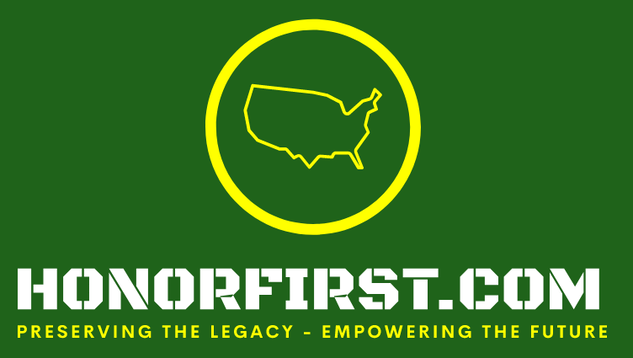

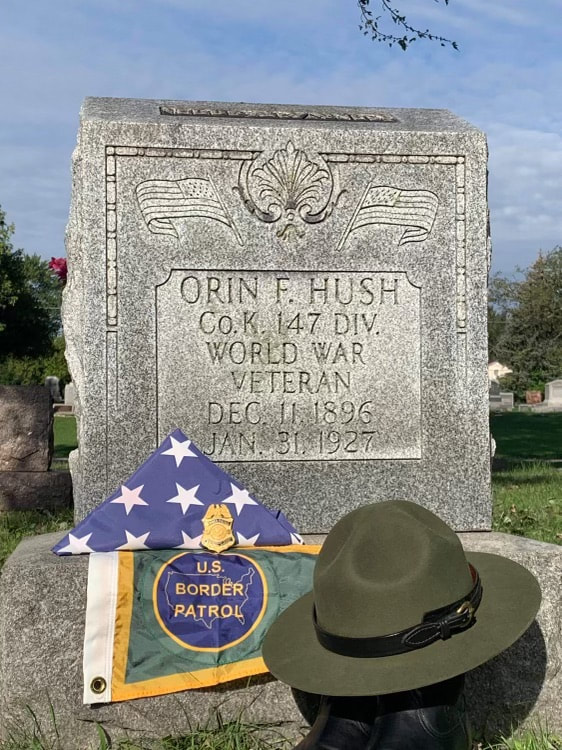
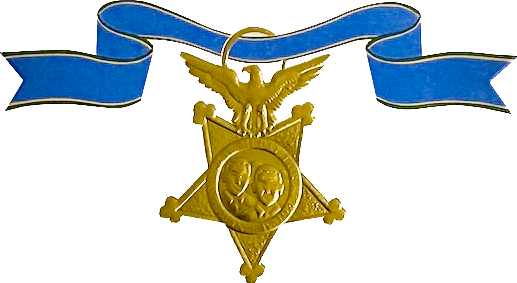
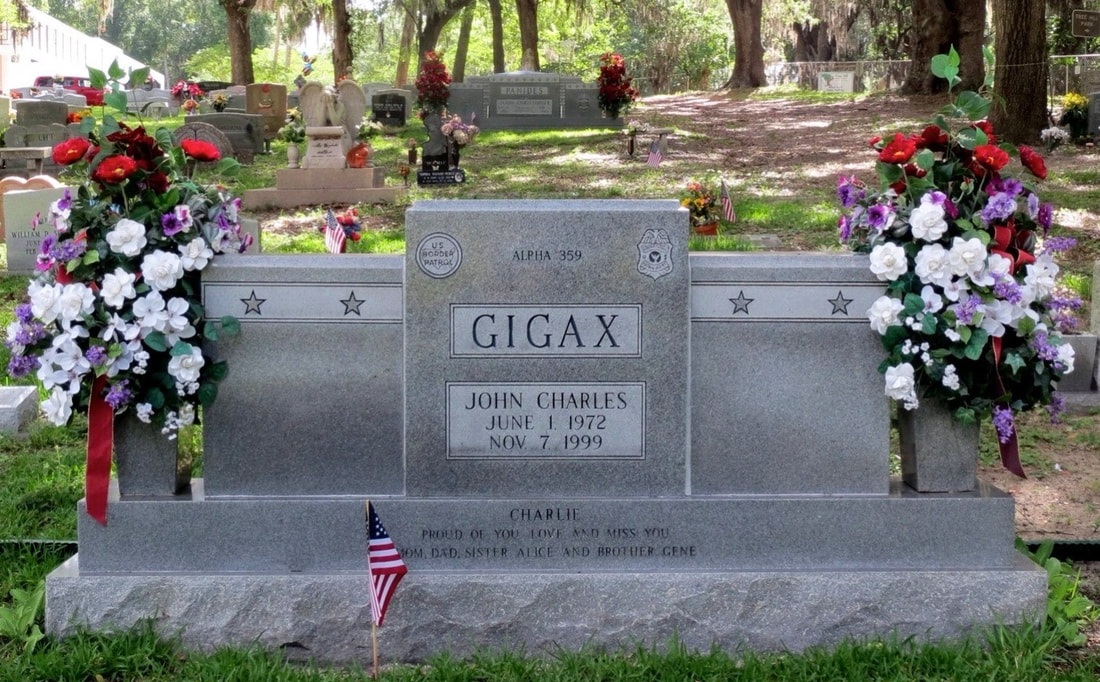
 RSS Feed
RSS Feed
